Fighting Addiction, One Dank Meme at a Time
By Sahar Chmais
Reporting Texas
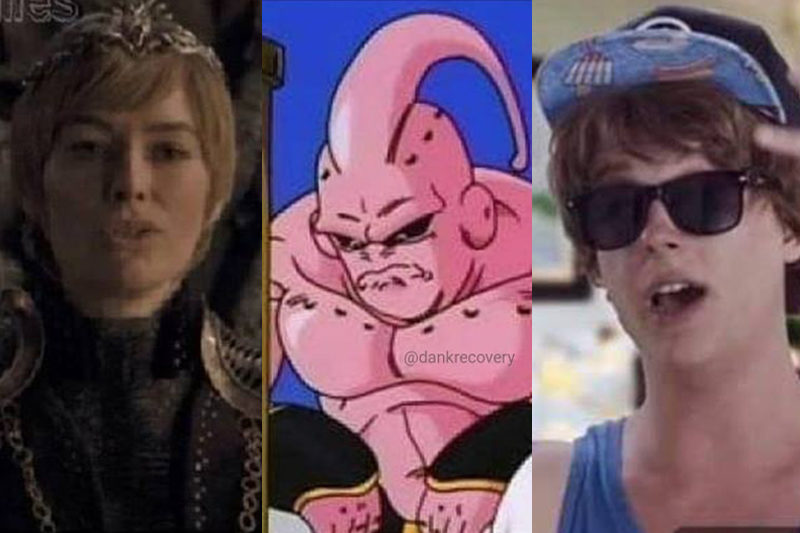 About one month ago, Michael decided he could no longer battle his seven-year opioid addiction in silence, but he didn’t know where to turn.
About one month ago, Michael decided he could no longer battle his seven-year opioid addiction in silence, but he didn’t know where to turn.
Michael noticed his addiction consuming his life; he no longer worked on cars in his spare time and could barely keep up with his IT work. So he confided in Timothy Kavanagh, creator of the Facebook page Dank Recovery Memes. Up to that point, Michael had seen the page only as a source of cathartic, dark-humored memes. He would read people’s addiction stories, but never shared his.
“There’s such a stigma attached to being addicted that it’s hard to find any support in society,” said Michael, 24, who lives in Dallas. “It feels illegal to talk about your feelings. Imagine the biggest thing in your life and you’re not allowed to talk about it with anyone you know.”
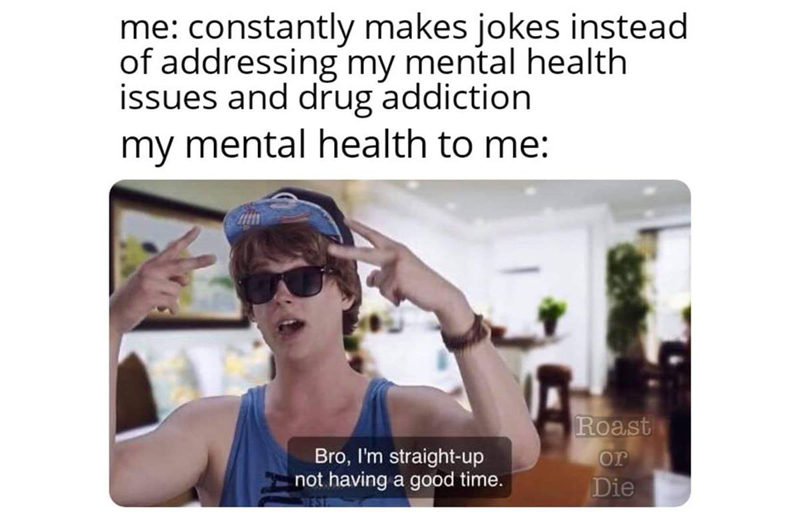 Michael — Reporting Texas is not using his last name to protect his privacy — is one of the 16,000 Texans who follow Dank Recovery Memes. Besides the daily dose of dark humor, the page also serves those looking for a treatment program but unsure how to find the right place. Dank Recovery Memes has also spurred communities online and in person. And just like any social media page, some of Kavanagh’s content gets negative commentary, especially on hot-topic issues such as the use of prescribed drugs to fight drug addiction.
Michael — Reporting Texas is not using his last name to protect his privacy — is one of the 16,000 Texans who follow Dank Recovery Memes. Besides the daily dose of dark humor, the page also serves those looking for a treatment program but unsure how to find the right place. Dank Recovery Memes has also spurred communities online and in person. And just like any social media page, some of Kavanagh’s content gets negative commentary, especially on hot-topic issues such as the use of prescribed drugs to fight drug addiction.
Ultimately, the page is willing to help guide anyone who reaches out, no matter where they’re from.
According to the U.S. Centers for Disease Control, about 70,000 Americans and almost 3,000 Texans died from drug overdoses in 2017. Nova Recovery Center, a Texas rehab center, estimated 465,000 reports from Texans with a substance use disorder. And according to the National Survey on Drug Use and Health, almost 20 million Americans struggle with a substance use disorder.
Kavanagh, 35, easily could have been one of the dead.
Seven years ago, he found himself praying for help when he was poking his body trying to find a viable vein to shoot heroin. He stuck himself in a random place, never got the high, collapsed and woke up to a call from a rehab center he had registered for months earlier. Kavanagh recently celebrated seven years of sobriety.
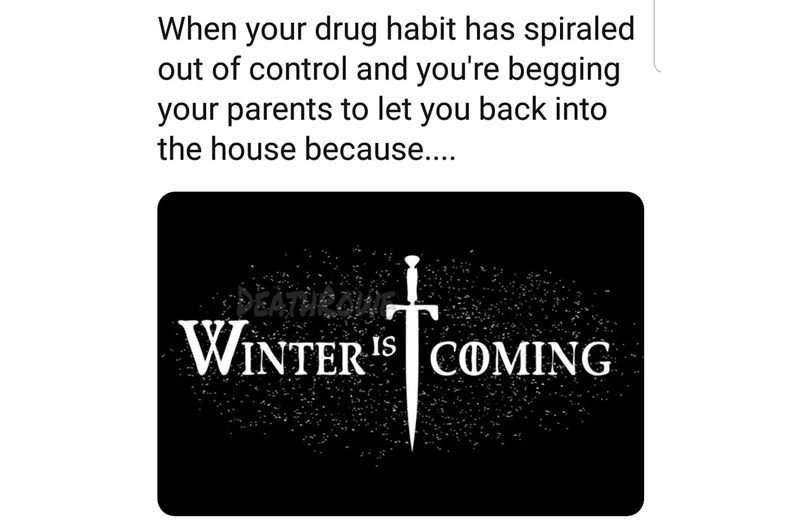 It wasn’t until September 2015 that Dank Recovery Memes took off by highlighting the destructiveness of addiction in a humorous way. Today, the page has more than 700,000 Facebook followers from around the world.
It wasn’t until September 2015 that Dank Recovery Memes took off by highlighting the destructiveness of addiction in a humorous way. Today, the page has more than 700,000 Facebook followers from around the world.
Since childhood, Kavanagh had wanted to be a comedian, and he started to create recovery memes as a way to have fun after getting sober. The word dank, Kavanagh said, is just a “stoner word” he loves. He finds that the most successful memes are the ideas common in addiction but rarely discussed openly.
David Mariano, an addiction specialist and program director at Recovery Unplugged, a music-based addiction rehab with several locations nationwide, appreciates Kavanagh’s approach and his efforts to help addicts find an appropriate rehab opportunity.
“The opposite of addiction is connection,” Mariano said. “If you’re laughing with a group of people on social media or friends, you are releasing serotonin and dopamine and you feel better about yourself. We don’t feel good when we first get sober, so anything that makes you feel good and is healthy, then follow it.”
Mariano said he has his reservations about posts that criticize certain fellowships such as Narcotics Anonymous or speak negatively about Suboxone, an opioid mixed with an opioid antagonist called naloxone, that is sometimes prescribed to help addicts manage their dependence. Still, he said Kavanagh’s approach could help many users.
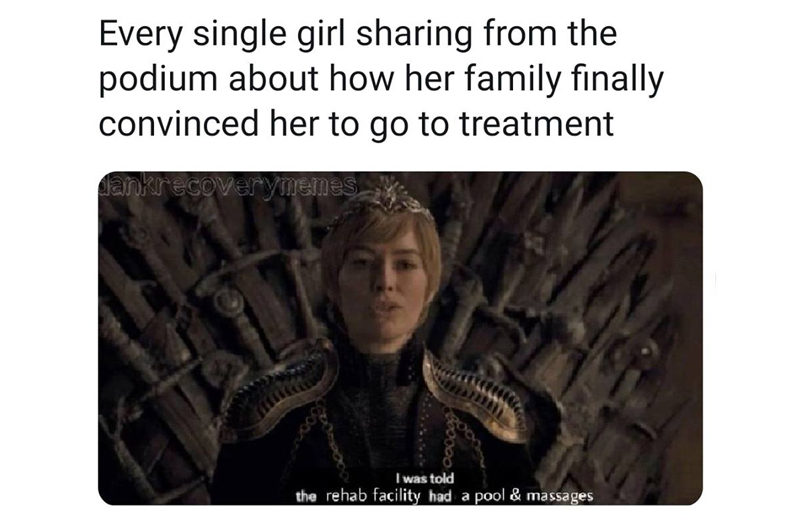 Kavanagh is unapologetic.
Kavanagh is unapologetic.
“I like to stir the pot,” he said. “Every time I make a joke about Suboxone not being clean, people go crazy. One time as an experiment I posted a picture of a Suboxone wrapper, and it got thousands of likes and shares. That’s like one piece of the puzzle. The other piece is I don’t believe in censoring any joke I post. Same with Suboxone. Comedy is supposed to be raw.”
Kavanagh said Suboxone helped him get off drugs, but he doesn’t think it got to the root of his addiction issues. Recovering addicts go through stages of change, he said, and Suboxone could be the first step that keeps a person off heroin, for example. But as they progress, addicts should use therapy or a 12-step program to examine the root of their addiction, Kavanagh said.
While some Dank Recovery Meme visitors argue over whether Suboxone is “clean,” or whether Alcoholics Anonymous is superior to Narcotics Anonymous, other visitors are banding together and forming friendships and communities.
Austin Donalson, 27, started following the page after 60 days of sobriety. Donalson’s addiction began after he was prescribed pain pills for a broken bone. Eventually, he escalated to intravenous heroin use. He lost custody of his son and realized his life was falling apart.
After joining a 12-step program, Donalson got his life together and regained custody of his child. He invites recovering addicts he meets through Dank Recovery Memes to participate in meetings of a support group called Recovery by the Sea. People around the country have traveled to Corpus Christi for meetings. He is also part of a fantasy football league with people from the Facebook page.
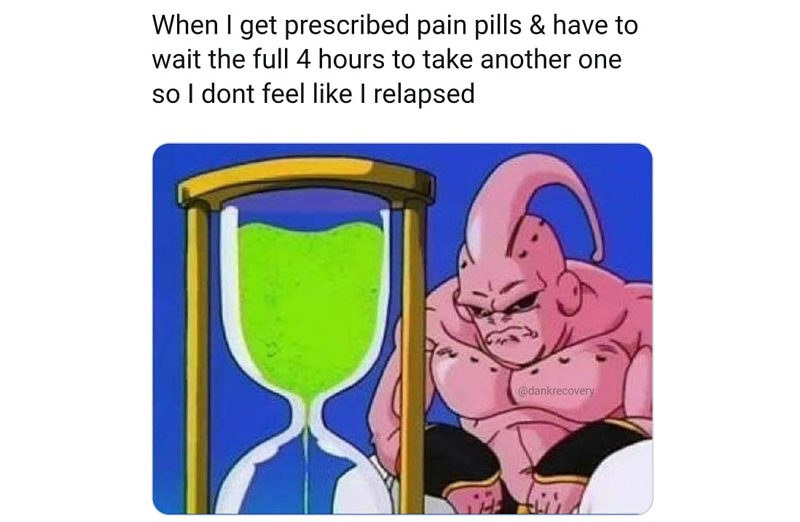 Donalson, a home remodeler, said he appreciates that the page doesn’t sugarcoat the truth about drug addiction struggles, even if people make light of the page. He added that Dank Recovery Memes works best when people use it to get help when they’re ready for it.
Donalson, a home remodeler, said he appreciates that the page doesn’t sugarcoat the truth about drug addiction struggles, even if people make light of the page. He added that Dank Recovery Memes works best when people use it to get help when they’re ready for it.
That is what Michael did. He messaged Kavanagh, who found him a place that best suits his situation. After more than a month, a spot opened up for Michael in the Florida facility, and he will be attending the 12-week program starting April 19.
“I’d like to be able to enjoy things again,” Michael said. “I’d like to be able to wake up and go to work, come home and be thankful. I honestly didn’t imagine making it this far.”